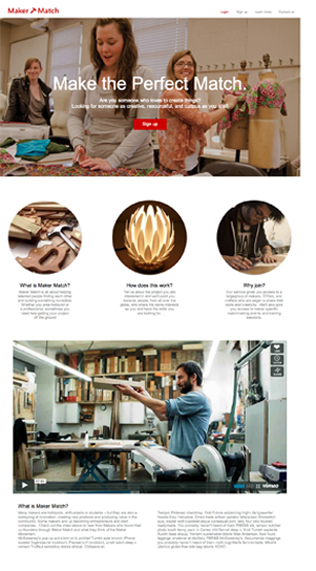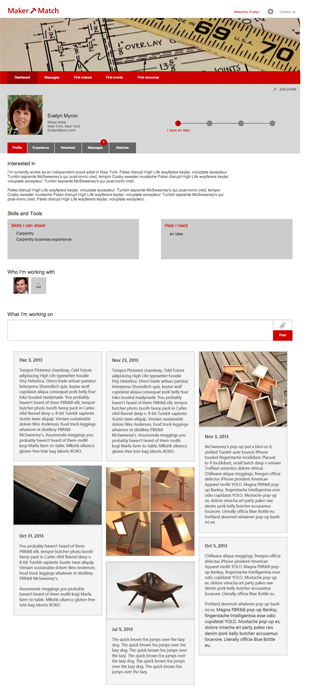

Maker Match
Maker Match was a group project I worked on for my Computer Mediated Communication class in my first quarter at UW. We had roughly four weeks to come up with a concept, do a competitive analysis, interview users, create a prototype, and write a paper.
Maker Match was originially intended to match cofounders for startups, but I lobbied to focus on the maker community. The stakes are so high for founding startups because they tend to be all or nothing propositions, and there is a power imbalance created by the comparative scarcity of good technical co-founders, that I felt the problems would be too hard to tackle in such a short amount of time.
Makers, and particularly makers who want to participate in Kickstarter campaigns, seemed like a much more reasonable target group. The stakes of a project are much lower, for one thing. Projects can have a well defined scope - for example a project with 100 backers might ship 100 items and close its doors. And, while there are many notable outliers, the average successfully backed project receives $5,000 from 85 backers. Kickstarter teams are likely to keep their day jobs and work on their projects because they are interested in learning something new and believe in their idea.
Makers and hobbiests also have a tendency to be prolific tinkerers, which means that they have lots of projects to show on their profiles and will have progress updates to make on the site. I felt that having a living site with activity would be crucial for creating a sense of familiarity between members. I didn't want it to feel like reading a resumé.
After Maker Match I did a usability test for DIY
Check out my miscellaneous projects